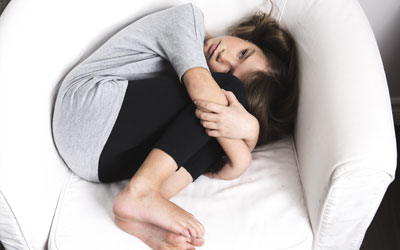What is ADHD?
ADHD (Attention Deficit Hyperactivity Disorder) is a condition that can affect focus, organisation and impulse control. You or your child might find it difficult to stay on task, control impulsive behaviours or manage daily responsibilities. This might appear as a short attention span, constant fidgeting and acting without thinking. These challenges can be more noticeable in places like school or work, where structured routines are common.
Signs of ADHD often appear in childhood, particularly once school starts. If your child struggles to follow instructions, stay seated or focus compared to their peers, these may be early signs of ADHD.
ADHD can occur alongside other conditions such as autistic spectrum disorders, Tourette’s syndrome and OCD. This can make it more challenging to manage.
A diagnosis requires these behaviours to be displayed at both home and school for at least six months. They must also significantly impact daily life and begin before the age of 12.
It can take a long time to get an official ADHD diagnosis. This is often due to delays in getting a professional assessment from the NHS. Getting professional help can be delayed because of historical beliefs. Many people wrongly link ADHD to bad parenting, too much video game use, and unhealthy eating.
Some adults are ‘self-diagnosed’ with ADHD. This means they believe they meet the criteria for ADHD but it wasn’t picked up in childhood and they don’t have a formal diagnosis. They may choose to manage their condition through a combination of lifestyle adjustments and therapy.
3-4% of UK adults have ADHD
4x more common in boys than girls
65% of those diagnosed continue to have ADHD symptoms into adulthood
The most common treatment is the stimulant drug methylphenidate
What causes ADHD?
The exact cause of ADHD isn’t fully understood, but it’s believed to involve differences in brain development and neurotransmitter imbalances. These are the chemicals that help brain cells communicate. These differences may affect attention, behaviour and impulse control.
ADHD often runs in families, suggesting a genetic link. If you or a close relative has ADHD, there’s a higher likelihood your child may develop it too. Environmental factors, such as significant stress during pregnancy or exposure to substances like alcohol or drugs, may also contribute.
Boys are diagnosed with ADHD more frequently than girls, who often experience it differently. Boys may display more obvious signs like hyperactivity, while girls may show more subtle symptoms, such as inattentiveness. This can lead to underdiagnosis.
More adults are now on lengthy waiting lists for ADHD assessments. More than half of the referrals for a possible ADHD diagnosis are for adults.
What does ADHD look like?
ADHD affects around 5% of school-aged children. It affects slightly fewer adults, though that may be due to historical underdiagnosis. These children are often as intelligent as their peers but may find it harder to keep up in school.
Concentration can be a struggle, making it difficult to complete tasks like homework. People with ADHD may find it difficult to remember everyday responsibilities like bringing in permission slips or their PE kit. They might also find group work challenging, frequently interrupting others or struggling to take turns.
Constant movement can cause restlessness, which may lead to trouble in the classroom and at home. Over time, these difficulties can affect self-esteem, particularly if the child receives regular criticism or struggles to make friends. As a result, children with ADHD may fail to engage in school and fall behind.
Adults with ADHD face similar challenges in the workplace, such as meeting deadlines or managing multiple tasks. Relationships may also be affected, often leading to feelings of frustration, isolation or anxiety.
In both children and adults this can lead to anxiety around performance and a lack of confidence. They may feel guilt for not being like their peers and frustration with themselves.
How can it be managed?
ADHD is usually diagnosed after a GP referral to a specialist. The NHS recommends a mix of approaches that address both the physical and emotional aspects of the condition. These include medication, behavioural therapy and environmental adjustments.
Medication
Medication can help with focus and impulse control. It’s important to work closely with your doctor to find the right treatment. They will aim to minimise side effects and regularly reassess its effectiveness as your needs change. Medications like methylphenidate and lisdexamfetamine help by increasing the levels of certain chemicals in the brain that support focus and decision-making.
Most ADHD drugs are available as slow-release versions to get around the need to take them more than once a day. An early start for school-aged children means that they may wear off after lunch. If so, it is worth considering a small ‘top up’ dose to help maintain their effects in the afternoon.
School and workplace adjustments
Breaking tasks into smaller steps or allowing movement breaks can help manage ADHD symptoms. Educating teachers, parents and support staff about ADHD can make a significant difference. Adjustments in the classroom or workplace, such as reducing distractions and using visual aids can too.
Routine and consistency are key. For children, this might mean incorporating reward systems, fidget tools or extra time for assignments. For adults, it could involve structured routines and clear itemised deadlines at work.
Diet
Though ADHD isn’t caused by diet, a balanced diet rich in omega-3 fatty acids from foods like fish and seeds may help manage symptoms. Processed foods and artificial additives can sometimes make symptoms worse, particularly in children.
Talking therapies
Therapies like cognitive behavioural therapy and hypnotherapy for ADHD are useful tool for managing the condition, particularly for adults. They help addressing negative thought patterns and behaviours, giving people with ADHD more effective coping strategies. Therapy may also help you work through associated feelings of anxiety or low self-esteem.
For children, therapy that involves the family may be more effective. This can help everyone understand the condition and work together on strategies to improve focus and behaviour.
How can hypnotherapy help?
Solution focused hypnotherapy for ADHD offers a positive approach to managing the condition. By helping you understand how your brain works, hypnotherapy can teach you to harness positive behaviours and reduce anxiety.
In ADHD hypnotherapy sessions, we guide you to focus on your strengths so we can build your confidence and boost self-esteem. We help you to develop and maintain consistent habits, promoting an awareness of your existing qualities and skills. This focus on the positive attributes helps to reduce anxiety and loneliness that many people with ADHD experience.
Sessions often include relaxation techniques and hypnosis for ADHD that help calm an overactive mind. This deep relaxation state gives you a greater sense of control and focus. Over time, this helps strengthen the brain’s ability to make decisions and stay focused, leading to better control over ADHD symptoms.
Whether through a combination of medication, therapy, or lifestyle changes, there are many ways to manage ADHD effectively. Living with ADHD can be challenging, but with the right tools and support, you can find balance and success in everyday life.


Our ADHD Specialists
Why Choose Inspired To Change
Our solution focused hypnotherapists empower you to better understand your brain, helping to guide you towards solutions and achieve the outcomes you want. We have a team of fully trained hypnotherapists, giving you the choice of who to work with and how you want to work with them. Solution focused hypnotherapy is just as effective in-person or online in the comfort of your own home, so you can find the ideal therapist to help you reach your goals.
Every one of our hypnotherapists is recognised by governing bodies like the National Council for Hypnotherapy, the UK’s leading not-for-profit hypnotherapy professional association. They have all trained with Clifton Practice Hypnotherapy Training, one of the leading hypnotherapy schools in the UK.















